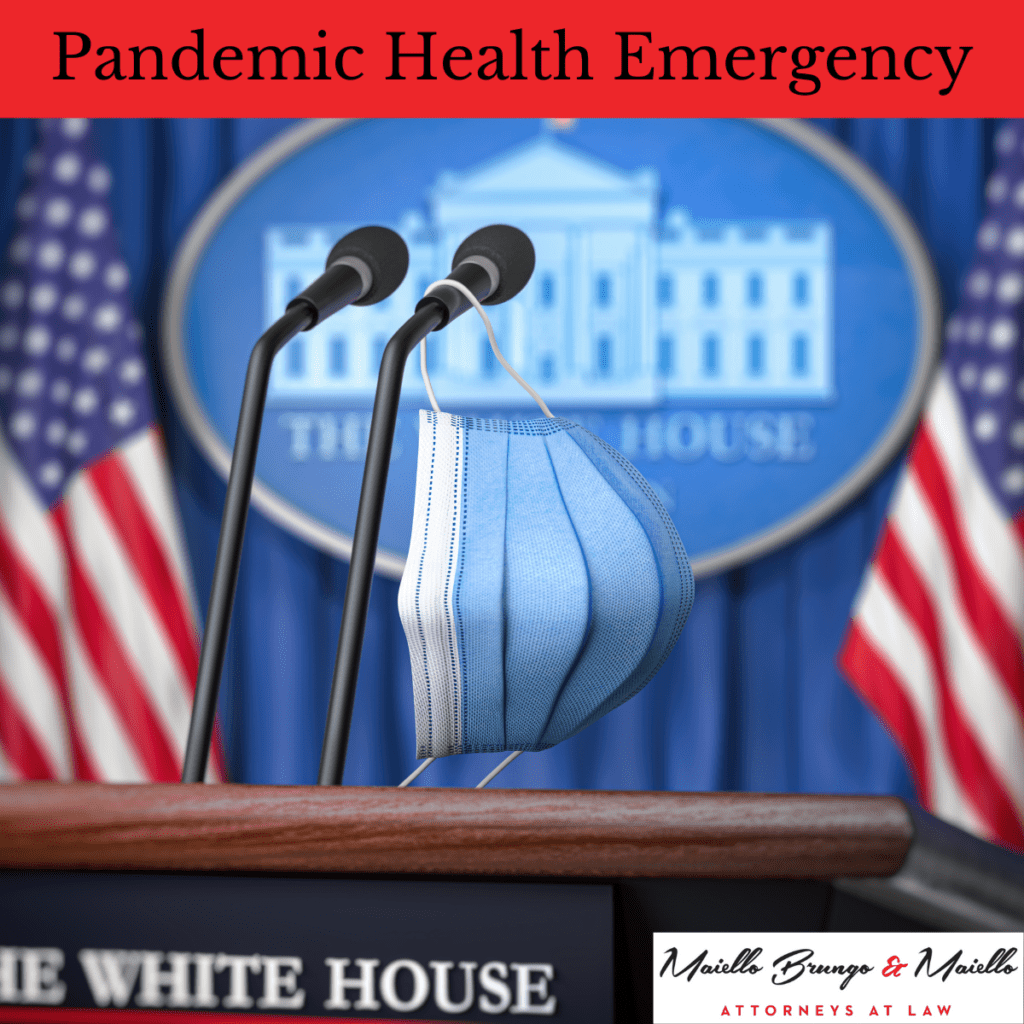May 11, 2023 marked the end of the COVID-19 pandemic Public Health Emergency (PHE) ushering in a wave of policy changes and ending a series of benefits instituted under PHE. Although President Joe Biden initially stated that he would not renew the PHE (which was enacted in January 2020) or the pandemic national emergency after May, President Biden did ultimately move up the timeline by signing a resolution in April – ending the PHE earlier than scheduled. This early end, however, did not alter important guidelines that were set forth in previous guidance.
Trying to stay compliant? Contact MBM Business Lawyers
COVID-19 PHE Ended: How Can Employers Adjust
So, what does the end of PHE mean? In short, employers will have to make a number of decisions regarding how they plan to move forward without federal requirements. Multiple provisions under the PHE will end such as mandates requiring health insurance plans that fully cover COVID-19 testing and vaccination requirements for federal employees, contractors, and some health care workers.
Whereas previously health insurance plans had to fully cover COVID-19 testing without employee cost sharing, medical plans, including employee-sponsored plans, now no longer have to cover or contribute to the cost for testing. This raises questions for employers: how are we going to cover COVID-19 testing going forward? Are we going to continue to pay for it? Should we limit testing to in-network only? Should we enact a policy relating to over-the-counter tests?
MBM has been in practice for over 50 years, and our team of business and corporate lawyers are experienced in assisting with answering these questions and more. Reach out with a phone call to speak with our business law attorneys:
Additional End of PHE Questions for Employers
Employers, especially those that often deal with health care workers or federal employees/contractors, will now have to evaluate their policies regarding vaccination and tracking the virus. Vaccination is no longer a requirement according to The White House, stating “While vaccination remains one of the most important tools in advancing the health and safety of employees and promoting the efficiency of workplaces, we are now in a different phase of our response when these measures are no longer necessary.”
COVID Public Health Emergency Deadline
Another important consideration is the July 10th deadline, which remains in effect. This deadline is significant for employers as it marks the end of the special enrollment period that gives employees up to a year to enroll in a health plan after a major life event, rather than the standard 30 days. It additionally will mark the end of some COBRA-related relief, under which employees were allowed extra time to pay their premiums or to decide whether they wanted to use coverage.
Public Health Emergency FAQs
The U.S. Department of Labor (DOL), U.S. Department of Health and Human Services (HHS) and the U.S. Department of the Treasury collectively created a PHE frequently asked questions guidance that was issued on March 29 to help employers navigate the end of the COVID-19 emergency orders. This guidance provides details on COVID-19 diagnostic testing, coverage of vaccines, and the extended deadlines for COBRA, special enrollments and group health plan claims and appeals, which can be found here.
PHE Legal Assistance
The attorneys at MBM Law have been continually guiding employers through the evolving situations surrounding the pandemic. We are here to provide updates and legal counsel to help you understand and implement the newest regulations of the ‘new normal’ workplace.


